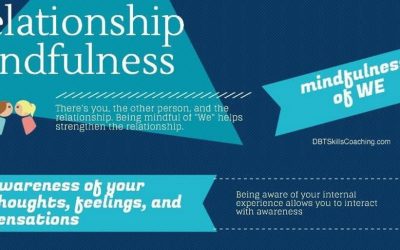When you are younger, school is a place of mastery. You learn how to read, write and do math. You may learn a foreign language. You don’t have a choice about going to school when you are younger, so you can’t quit. And you are really motivated to do learn certain things, such as getting your driver’s license or play the guitar.
What Blocks You? When you are older, you may find that you want to accomplish different goals/tasks, but when the work becomes tedious or challenging you want to quit. You may give up when your mood is down or when you can’t do the task as well as others do it. You have an urge to stop when you are frustrated that you can’t learn quickly. How many tasks, hobbies or goals have you given up on because of your feelings, such as frustration?
Emotion Mind
Mood dependent behavior is acting on emotion mind, not wise mind. When you give up or stop because of your feelings about the task/goal, that is likely to be in emotion mind. Your mood/urge says to stop, so you don’t persevere even though the goal is important to you. Your emotion mind is making the decision.
Building mastery is about not stopping. Instead you keep doing what is a little bit challenging even though it is uncomfortable at times. The sense of “I can do it!,” the self-confidence, improves your mood and your view of yourself.
The first step is being aware of your pattern. Then you can Cope Ahead for the problems that you typically face when trying to do something that is difficult. Think about the task you have chosen to practice in “Build Mastery” and complete the following questions.
- What emotions do you experience when you are working on the goal you have chosen?
- In the past when you have stopped doing things, was it primarily because of thoughts that you had, emotions that you experienced, or a lack of skill (such as structuring time)? If you have urges to quit now or not practice “build mastery”, is it mainly about thoughts you have or the way you feel when you try to do something that is difficult?
- What skill(s) can you use to Cope Ahead so that you can stick with a hobby or task that you really want to do and build your sense of mastery?
Cope Ahead Plan
Problem thoughts I have when doing something difficult:
Emotions that Interfere when doing something difficult:
Cope Ahead Plan: (How will you cope with these thoughts and emotions so you can get to your goal and not stop.)
Live a skill-full life. By, Karyn Hall, Ph.D., May 29, 2020





0 Comments